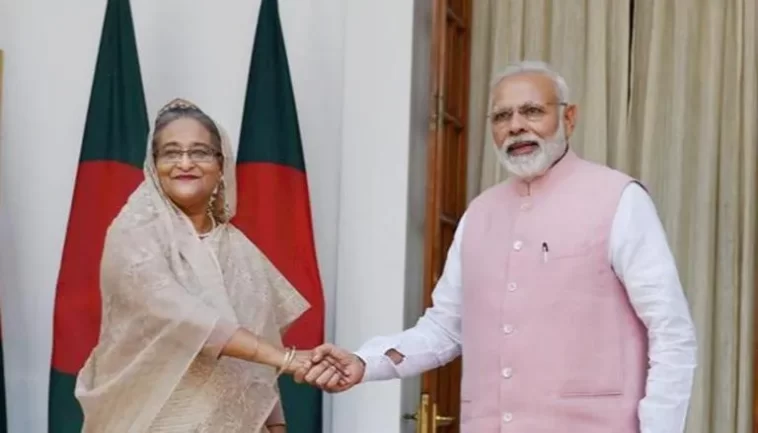On Saturday, India and Bangladesh officially opened a cross-border pipeline that will enable them to deliver one million metric tonnes of diesel annually to Bangladesh’s northern regions from Assam’s Numaligarh refinery.
The India-Bangladesh Friendship Pipeline (IBFP), which was opened virtually by Prime Minister Narendra Modi and his counterpart Sheikh Hasina, will speed up the delivery of petroleum from India while lowering transportation costs. It will also improve energy connectivity between the two nations.
Since 2015, Bangladesh has received gasoline products from the Numaligarh refinery. Currently, Bangladesh receives 60,000–80,000 metric tonnes of diesel by rail from India. This is India’s second electricity pipeline that crosses international borders with its neighbours.
Also read: How To Lose Chest Fat For Men
Modi claimed that the pipeline opened a new chapter in bilateral ties and that the two countries’ petroleum commerce has now surpassed $1 billion. “The farm industry will benefit most from a consistent and affordable supply of diesel. Local businesses will gain as well,” he said in Hindi.
Bangladesh’s electricity security depends on the pipeline, according to Hasina, who spoke in Bengali. “This pipeline will play a significant role in ensuring energy security for our people at a time when many countries are facing an energy crisis due to the Russia-Ukraine war,” she said.
She continued, “Assam’s residents will benefit. Bangladesh has created an excellent market for Assam.
India’s “Neighborhood First” strategy and development aid are primarily beneficial to Bangladesh. Costing 377 crore rupees, the 132-km conduit connects Parbatipur, Bangladesh, and Siliguri, India. The 127-km section within Bangladesh was constructed with an Indian grant; the groundbreaking took place in September 2018.
“I am sure this pipeline will accelerate the development of Bangladesh and also be an excellent example of increasing connectivity between the two countries,” Modi said in reference to the pipeline’s significance at a time when many developing economies are having difficulty ensuring their food and energy security.
Hasina cited the efforts made by both parties over time to strengthen ties, such as the Ganga Waters Sharing Treaty, the restoration of train and road connections severed during the India-Pakistan War in 1965, the settling of land and maritime borders, and increased energy connectivity.
She said that the first unit of the Rampal power plant, developed by the two nations, is now operational and that Bangladesh presently imports 1,160 MW of electricity from India. She reaffirmed her offer for India to use the Sylhet and Chattogram international airports, as well as the Mongla and Chattogram ports, and encouraged Indian companies to engage in the 100 economic zones being established in Bangladesh.




